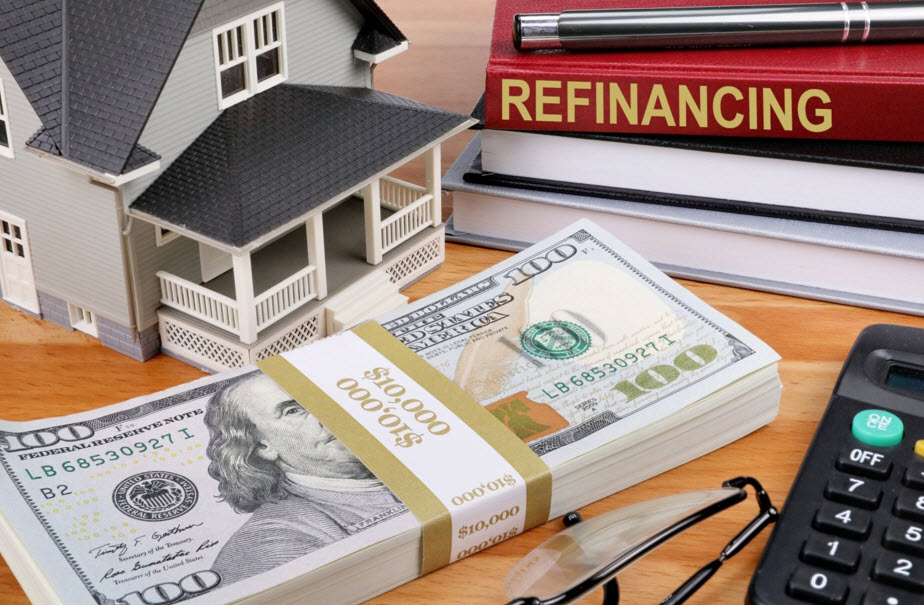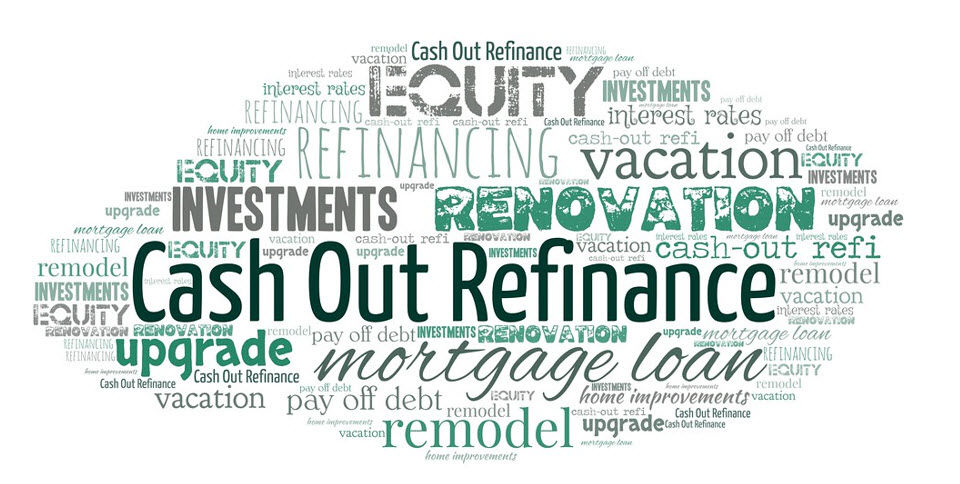Last Updated: January 15th, 2022
An average American household spends about 1,279 dollars monthly on their mortgage. Mortgage bills are among the biggest expenses on the financial duty list of many homeowners.
It is, therefore, no surprise that this could contribute to your stress level and you want to get rid of this obligation as fast as possible. Luckily, you may be able to achieve this through refinancing.
Refinancing involves the process of replacing your old mortgage loan terms with a new one. While this is a good financing choice, you need to ask some questions before you get into it. One of these important questions is whether or not you should. Supposing the answer to that is yes, then you need to ask when the right time is to do this.
Tips to Follow if you fail behind on your Mortgage Payments in the USA
This article answers these questions and even more.

Should You Refinance Your Mortgage?
When the reduced mortgage rates are considered, refinancing your mortgage may seem like a great choice. You can learn more about average mortgage rates based on the loan type, credit score, state, and year.
Take for instance, in the earlier stages of 2020, an average thirty-year mortgage had a 3.86% fixed rate. However, as the year came to an end, this percentage dropped down to just 2.96%. In 2021, the rates were hovering close to the 3% mark for people who have strong credits.
However, it goes beyond comparing your locked-in rate versus what you now qualify for. You would need to also evaluate the following before you can decide if you should refinance your mortgage or not:
- The new payment versus the old payment once all tax-favored conditions have been removed.
- How long do you intend to stay in the house?
- The running cost of obtaining a new mortgage.
When all these are properly calculated, you can now see whether refinancing is going to be a positive move or not.
When Should You Refinance?
When you look at it generally and are sure that refinancing will help you save money, pay off the mortgage quicker, and build your home’s equity then it is a good choice.
Even if your mortgage is fairly new, you can still benefit from a refinance. Let’s assume your mortgage was approved in early 2020 when the rate was 3.86%. Now that the rate is lower, even though it is not up to 2 years since you got the loan, you can leverage on the reduced rate and refinance to cut off about ½ percent. This way, your payment per month will be substantially reduced.
While refinancing is a great financial choice, it can sometimes be bad. For example, following through from the above illustration, refinancing when you intend to leave the home in say 2 years won’t be wise. This is because you won’t have time to get back the money spent on refinancing.
Also, you need to consider other factors to be sure the time is right for this process. One of these factors is your credit. People with great credits often get the best terms and rates. Hence, if your credit is currently not great enough to help you get a good deal, then the timing is probably not right.
Lenders may even think you are a risky borrower if you recently missed one payment or the balance on your credit card is quite high.

Refinancing Costs
Another thing you have to consider when determining whether to refinance your mortgage or not is the cost.
While most people often focus on interest rates, there are other costs to consider. One of which is the closing cost. You would be charged some fees when you want to close your new loan, this fee can be expensive sometimes.
Usually, the closing cost is between two to five percent of your entire loan amount. So, let us assume you get an offer of 250,000 dollars and a 4% closing cost. This means you would be paying 10,000 dollars as your closing cost.
Some lenders often allow their clients to roll this cost into their loan balance and pay for it alongside the main loan instead of getting the money upfront. However, this may be to your detriment as this would substantially increase the total money you owe as it will also accrue interest. At the end of the day, you will be paying more than you should.
The Duration of Refinancing
If you want to refinance your mortgage, then you have to know that this will not happen in a flash. You would typically be going through the same process that you went through when you got your initial mortgage.
That means you will have to go through income verification, debt and credit review, property appraisal, and closing the loan all over again.
As of 2021 July, an average refinancing took about 47 days (a month and 2 weeks) to close. However, the time needed to close the loan is faster with some lenders that use automated online procedures.
Before you decide on a lender, you can find out their average closing duration by asking them. But, if you have considered all we have discussed so far and now is a good time for you to do this, then the process involved shouldn’t intimidate you.
Is it Worth It?
You are the only one that can answer this question satisfactorily. If you will gain refinancing benefits with few drawbacks (because you are doing it at the right time), then it most definitely will be worth your time.
All you need to do is look for the best method that will suit your needs. Be sure to understand the difference between secured and unsecured refinancing (refinansiering uten sikkerhet) so you don’t have regrets down the line.
Conclusion
Refinancing is a way homeowners reduce the time they have to pay their mortgage off, build their home’s equity, and save money. However, while there are so many benefits to be gotten, this process may not always be the right choice. So, before you decide on a mortgage refinance, you have to consider your financial condition alongside all we have discussed in this article. Doing this will not just ensure your timing is right. It will also ensure that you enjoy all the benefits with a few (if not none) drawbacks.
